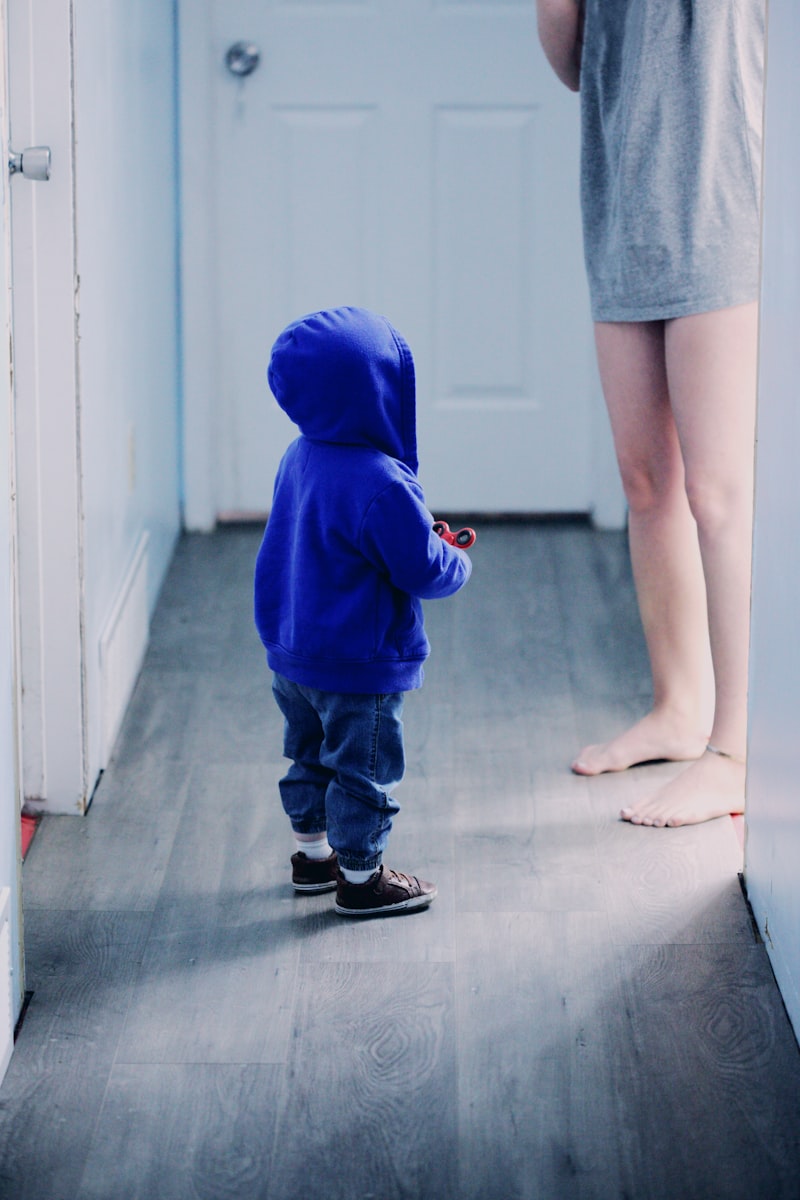Start by syncing your baby’s schedule with their natural sleep patterns. Babies thrive on predictability, and a daily routine helps them feel secure. Try to establish regular wake-up, feeding, and naptime intervals. It’s like setting a clock that helps them tick along peacefully. Think of it as programming their internal GPS to get them used to a rhythm.
Feeding times are another crucial piece of the puzzle. If you can, aim to feed your baby at the same times each day. This not only helps them feel full and satisfied but also reinforces their sense of security and routine. Picture it as setting regular mealtimes for yourself, but tailored to your baby’s needs.
Nap times are just as important. Babies generally need multiple naps throughout the day. Creating a calm, soothing environment for these naps can help your baby fall asleep faster and sleep more soundly. Imagine it like crafting a cozy little haven where your baby can recharge.
Don’t forget to include some playtime in the mix. Engaging activities are vital for your baby’s development and can be a fun part of their daily routine. Think of playtime as the spice that adds flavor to their day.

And here’s a tip: be flexible. Sometimes, despite your best efforts, things might not go as planned. Adjustments are part of the journey. Keep an eye on your baby’s cues and be ready to adapt as needed.
Crafting the Perfect Baby Schedule: Tips for a Smoother Daily Routine
First off, think of a baby schedule as a gentle guide rather than a strict rulebook. Babies thrive on consistency, but that doesn’t mean you need to stick to a rigid timeline. Start by observing your baby’s natural patterns—when they sleep, eat, and play. Then, build a schedule around these natural rhythms.
For example, if your little one tends to nap around the same time each day, try to align their feeding and playtime around those naps. This approach helps create a routine that feels organic and less forced. It’s like tuning into your baby’s internal clock rather than setting your own.
Also, consider incorporating flexibility into your schedule. Babies have their off days, and that’s perfectly normal. Maybe your baby decides to take a longer nap or skip a feeding here and there. That’s where the flexibility comes in—adjust as needed without stressing over the small deviations.
Engaging in a pre-sleep routine can work wonders. A calming ritual before bedtime, like a warm bath or a quiet story, can signal to your baby that it’s time to wind down. This doesn’t only help with nighttime sleep but can also smooth out the transitions between activities during the day.
So, crafting the perfect baby schedule is less about hitting every exact mark and more about creating a rhythm that works for both you and your baby. With a bit of observation and a dash of flexibility, you’ll find a routine that feels just right.
From Chaos to Calm: How to Create a Structured Routine for Your Baby
Start by setting a consistent sleep schedule. Just like adults, babies thrive on routine, and a predictable sleep pattern helps them (and you) get the rest you need. Aim for a bedtime and wake-up time that stays the same every day, and stick to it. This regularity helps regulate their internal clock, making bedtime less of a battle and more of a breeze.
Next, establish feeding times and activities that align with their natural rhythms. Predictable meal times not only aid in digestion but also signal to your baby that it’s time to wind down or gear up for play. Include soothing activities like storytime or gentle rocking to help transition from one part of the day to the next.

Incorporate playtime into your baby’s routine as well. Just as adults look forward to a relaxing evening after a busy day, babies benefit from having structured play sessions that stimulate their senses and promote development. Consistent playtimes can help your baby feel secure and content.
Think of a structured routine as a roadmap for both you and your little one. It provides a clear path through the day, reducing stress and helping both of you understand what to expect. With a little patience and persistence, you’ll find that your baby adapts quickly, and your home transforms from chaotic to calm.
Essential Steps to Building a Successful Daily Routine for Your Little One
First off, consistency is key. Just like a well-tuned piano, your child’s day needs a steady rhythm. Start by establishing a regular wake-up time and bedtime. This consistency helps regulate their internal clock, making mornings smoother and nights more restful. Imagine if you had to wake up at different times every day—how would that impact your mood and energy?
Next up, structure your day with predictable activities. Set specific times for meals, play, and learning. This doesn’t mean scheduling every minute, but having a general idea of what happens when can create a sense of security for your child. It’s like giving them a map of their day, so they know where they’re headed next.
Incorporate flexibility, too. Life is unpredictable, and sometimes plans go awry. Allowing for some wiggle room in your routine helps you adapt without turning the day into a chaotic mess. Think of it like adjusting the volume on a speaker—sometimes you need it louder, sometimes softer, but it’s always playing the same tune.
Don’t forget the importance of breaks. Just as you need a breather after a busy day, your child needs time to recharge. Schedule short breaks between activities to keep them from getting overwhelmed. These little pauses can make a big difference in maintaining their enthusiasm and focus.
Lastly, involve your child in the process. Let them know what’s coming up next and give them a say in some activities. It’s like being a co-pilot in their daily journey, helping them feel more engaged and in control.
Navigating Newborn Routines: How to Find What Works Best for Your Baby
Start with the basics: feeding, sleeping, and playtime. Babies thrive on routine, but that doesn’t mean sticking rigidly to a clock. Instead, observe your baby’s natural rhythms. For example, if your baby seems more alert after a feed, it might be a great time for some play or tummy time. Similarly, if they’re rubbing their eyes or getting fussy, it’s probably a sign they need a nap.
Think of it as trial and error. You might try a new bedtime routine one night and find it makes your baby sleep like a dream. Or, you might discover that a particular feeding schedule helps keep those pesky hunger cries at bay. The key is to stay flexible and responsive. Babies grow and change so quickly that what works one week might need tweaking the next.
Another tip? Keep a simple log of your baby’s patterns. Jot down when they sleep, eat, and play. Over time, you might spot patterns and discover what seems to make your baby happiest. It’s like putting together a treasure map—each little clue helps you get closer to finding the perfect routine.
Finally, don’t be too hard on yourself. Every baby is different, and what’s most important is finding what makes your little one smile and feel secure. Embrace the journey of discovering their unique needs and enjoy the ride.
Routine Reset: How to Establish Healthy Daily Habits for Your Baby
First off, consider this: babies thrive on predictability. A structured routine helps them feel secure and understand what’s coming next. Think of it like setting a clock for nap times and feedings. If you keep things consistent, your baby will start to anticipate these events, making them easier to manage.
Start by focusing on key areas: feeding, sleeping, and playtime. Regular meal times will help regulate your baby’s appetite and digestion, reducing crankiness and fussiness. Try to feed your baby at the same times each day. When it comes to sleep, establishing a bedtime routine is crucial. A calming ritual, like a warm bath followed by a lullaby, signals to your baby that it’s time to wind down.
Playtime is just as important. Babies need stimulation to grow and develop. Schedule daily play sessions that include a mix of physical activity and sensory exploration. It’s like giving their little brains a workout; they’ll sleep better and be more content.
Consistency is the secret ingredient here. Just as you wouldn’t skip breakfast because it’s your routine, sticking to your baby’s schedule helps them feel more settled. And remember, routines aren’t set in stone. As your baby grows, their needs and patterns will change, so be ready to adapt.
By embedding these habits into your daily life, you’re creating a soothing rhythm for your baby. The result? A happier, healthier little one—and a more harmonious home for everyone.
The Ultimate Guide to Baby Routines: Creating Consistency for Better Sleep and Development
Creating a consistent baby routine isn’t just about setting strict schedules; it’s about laying the foundation for a smoother, more predictable day. Think of it as your baby’s personal playbook. When you establish a routine for sleeping, feeding, and playtime, you help your baby’s internal clock adjust. This consistency is crucial for better sleep, which in turn fuels their development.
So, where do you start? Begin by setting regular nap times and bedtime. Babies thrive on routine, and having a set bedtime can help signal that it’s time to wind down. Create a calming pre-sleep ritual, like a warm bath or a soothing lullaby, to cue your baby that sleep is near. This isn’t just about making bedtime easier; it’s about creating an environment where your baby feels secure and ready for rest.
Feeding schedules are another vital piece of the puzzle. Regular meal times help regulate your baby’s appetite and prevent the fussiness that often comes with erratic feeding. By sticking to consistent feeding intervals, you’re not only nurturing their growth but also setting up a rhythm that they can depend on.
Playtime is equally important. Incorporate interactive and engaging activities at predictable times to stimulate your baby’s development. A routine for play can help your baby feel more settled and engaged, making each day enjoyable and educational.
Establishing these routines might seem like a lot of effort initially, but think of them as the keys to a more harmonious household. With a little patience and consistency, you’ll find that your baby’s days become more structured, and so will yours.
Routine Roadmap: Strategies for Structuring Your Baby’s Day Efficiently
Start with a gentle wake-up time. Babies thrive on consistency, so aim for a regular morning schedule. After a refreshing start, include a feed and some playtime. Keep play sessions engaging but not too stimulating—think of them as short bursts of energy that prepare your baby for their next nap.
Speaking of naps, they’re the unsung heroes of a baby’s daily routine. Establishing consistent nap times ensures your baby gets the rest they need, which in turn helps their overall mood and development. Incorporate calming activities before nap times, like a soothing lullaby or a gentle rock in the crib.
Meal times should also follow a predictable pattern. By offering regular feedings and meals at set times, you help regulate your baby’s hunger cues and digestive system. And don’t forget about the evening wind-down! Create a bedtime routine that’s both calming and comforting, helping signal to your baby that it’s time to transition from the day’s activities to a restful night.
Think of this roadmap as your baby’s daily guidebook, giving structure to their day and bringing a sense of security. With a well-planned routine, you can turn the chaos into a smooth rhythm, making each day a little bit easier and a lot more enjoyable.
Frequently Asked Questions
What are some tips for sticking to a baby’s daily routine
To maintain a baby’s daily routine, ensure consistency with feeding, napping, and bedtime. Create a predictable schedule and stick to it as closely as possible. Use cues like sleep signals or hunger to adjust the routine and keep a calm environment to help the baby adapt.
How do I adjust my baby’s routine for different sleep patterns
To adjust your baby’s routine for different sleep patterns, observe their sleep cues and patterns closely. Adapt the schedule by shifting nap times and bedtime to align with their natural sleep rhythms, ensuring consistency in wake times and routines. Gradually make these changes to avoid disrupting their sleep cycle.
What should a typical daily routine for a newborn include
A typical daily routine for a newborn should include frequent feedings every 2-3 hours, short naps throughout the day, and regular diaper changes. Activities should also involve gentle playtime and bonding moments, along with establishing a consistent sleep environment to promote healthy rest.
What is the best time to start a baby’s daily routine
The optimal time to start a baby’s daily routine is usually around 6-8 weeks of age, when their sleep-wake cycle begins to stabilize. Establishing a consistent routine helps regulate their sleep patterns and daily activities, promoting better rest and development.
How can I create a consistent sleep schedule for my baby
Establish a regular bedtime routine and stick to consistent sleep and wake times each day. Ensure the sleep environment is calm and conducive to rest, and gradually adjust the schedule if needed to fit your baby’s natural sleep patterns.


